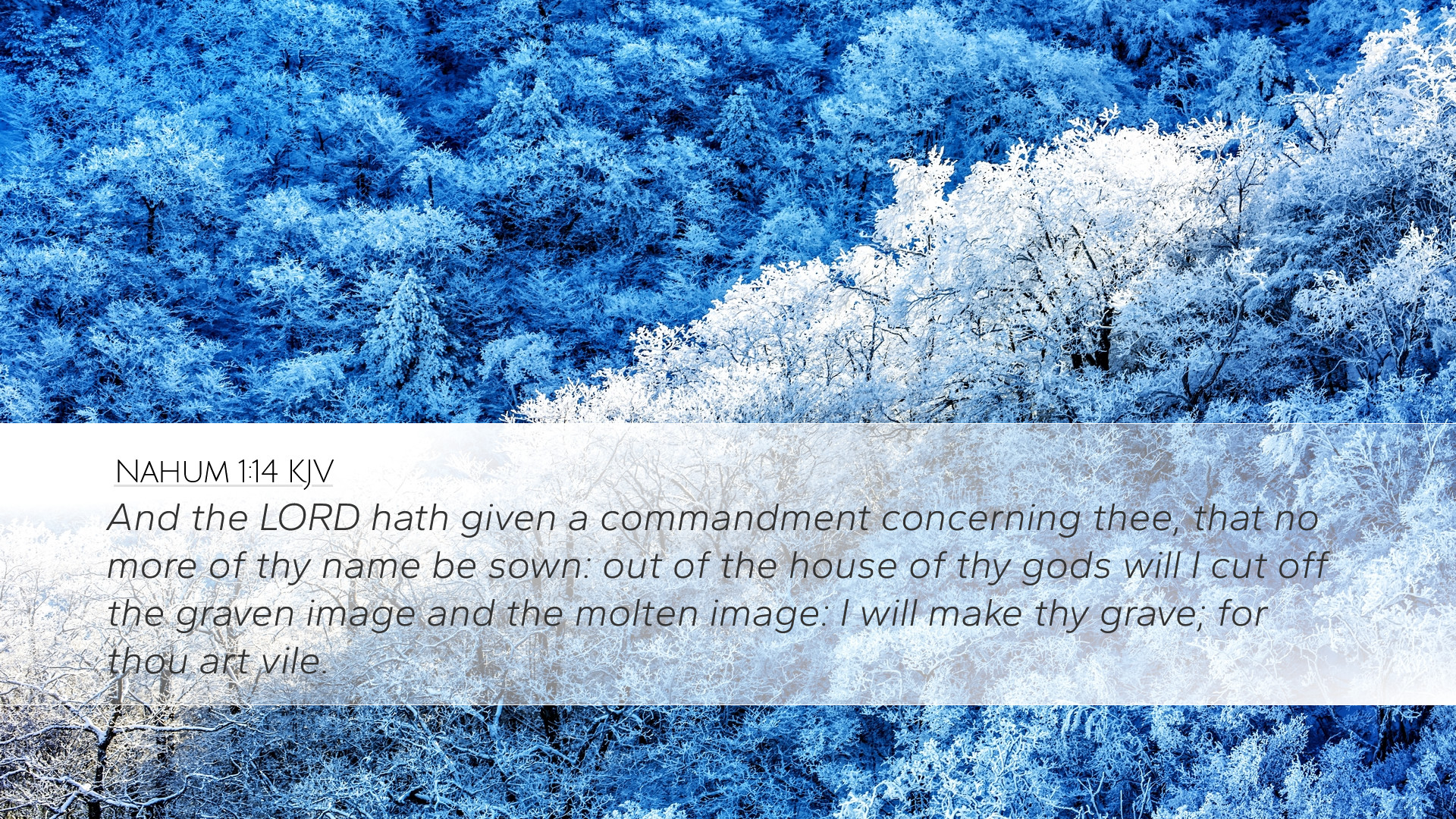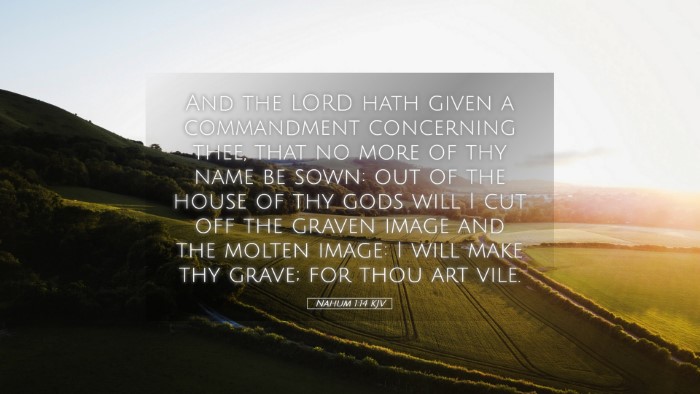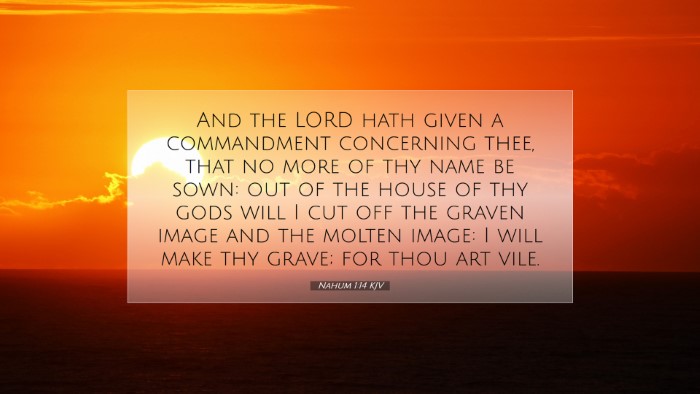Old Testament
Genesis Exodus Leviticus Numbers Deuteronomy Joshua Judges Ruth 1 Samuel 2 Samuel 1 Kings 2 Kings 1 Chronicles 2 Chronicles Ezra Nehemiah Esther Job Psalms Proverbs Ecclesiastes Song of Solomon Isaiah Jeremiah Lamentations Ezekiel Daniel Hosea Joel Amos Obadiah Jonah Micah Nahum Habakkuk Zephaniah Haggai Zechariah MalachiNahum 1:14
Nahum 1:14 KJV
And the LORD hath given a commandment concerning thee, that no more of thy name be sown: out of the house of thy gods will I cut off the graven image and the molten image: I will make thy grave; for thou art vile.
Nahum 1:14 Bible Commentary
Commentary on Nahum 1:14
Nahum 1:14 states: "And the LORD hath given a commandment concerning thee, that no more of thy name be sown: out of the house of thy gods will I cut off the graven image and the molten image: I will make thy grave; for thou art vile."
Introduction
The book of Nahum addresses the impending judgment of Nineveh, the capital of Assyria, known for its cruelty and oppression. This particular verse encapsulates God’s decree against this once-great city and reflects divine retribution for its idolatry and wickedness. The insights drawn from public domain commentaries shed light on the theological implications, historical context, and moral lessons from this passage.
Theological Insights
Divine Judgment: Nahum’s prophecy represents a declaration of God’s sovereignty over nations and His righteousness in meting out justice. Matthew Henry aptly notes that God's command signifies the irrevocable nature of His judgments. No longer shall Nineveh be remembered; its legacy of sin and idolatry is destined for obliteration.
Idolatry Condemned: The mention of "graven image and molten image" highlights the futility and emptiness of idolatry. Adam Clarke emphasizes that God’s act of cutting off these images signifies the ultimate rejection of false gods, which had led the people astray. The text serves as a reminder of the dangers of placing trust in anything other than the true God.
Historical Context
The prophet Nahum prophesied during a time when Assyria was at its height, feared by many nations. Albert Barnes articulates that this verse addresses the future destruction of Nineveh, portraying it as a stark contrast to the power it once wielded. Historically, Nineveh was a city marked by violence and oppression, and God’s declaration emphasizes the reversal of fortunes that comes through divine justice.
The Fall of Nineveh
In 612 B.C., Nineveh fell to a coalition of Medes, Babylonians, and Scythians. This fulfillment of prophecy reinforces the idea that God will not allow evil to persist indefinitely. The destruction serves as a testament to God's commitment to righteousness, revealing His active role in human history.
Moral and Practical Applications
For pastors, students, and theologians, Nahum 1:14 provides a wealth of moral teachings. The following applications can be drawn for contemporary contexts:
- The Importance of Righteousness: The demise of Nineveh serves as a cautionary tale about the consequences of turning away from righteous living. Communities and individuals must strive for justice and mercy.
- The Reality of Divine Justice: This passage reassures believers of the truth that God sees and judges the actions of nations and individuals. There is a call to trust in God’s ultimate justice amid societal wrongs.
- Idolatry in Modern Context: While few today may worship physical idols, the principle of idolatry persists in various forms. This can encompass anything that takes the place of God, be it materialism, fame, or self-interest. The text encourages an examination of personal priorities and loyalties.
Closing Thoughts
Nahum 1:14 serves not only as a historical account of judgment but also as a profound theological statement about God’s nature. His holiness demands justice, and His sovereignty guarantees that evil will not triumph. For theologians and scholars, this verse compels a deeper exploration of the character of God and His dealings with humanity.
In conclusion, Nahum 1:14 is a powerful reminder of God’s authority over all creation and the tragic fate awaiting those who resist His commands. It calls for reflection on personal and communal faithfulness to God, declaring that in divine justice, every knee shall bow.


